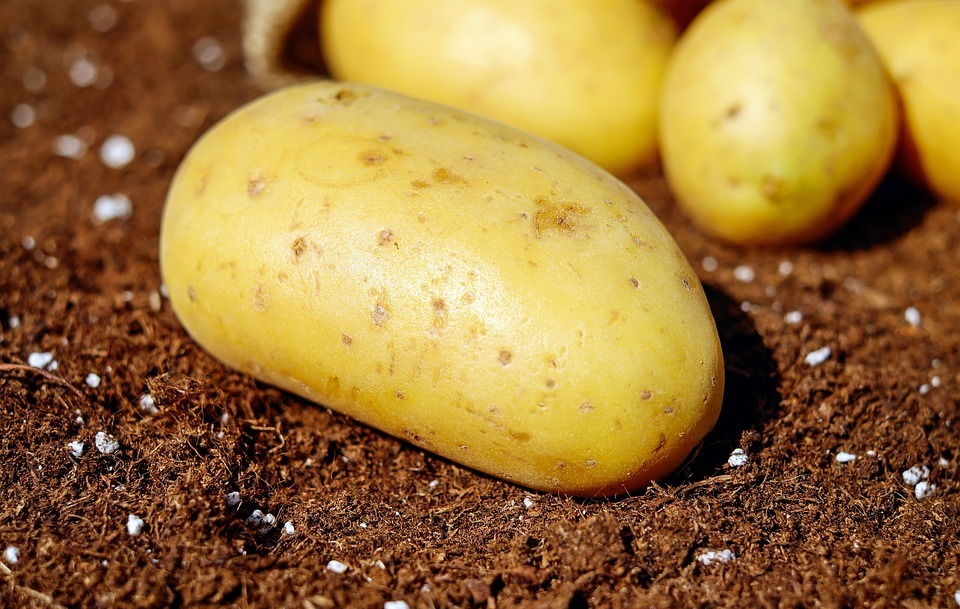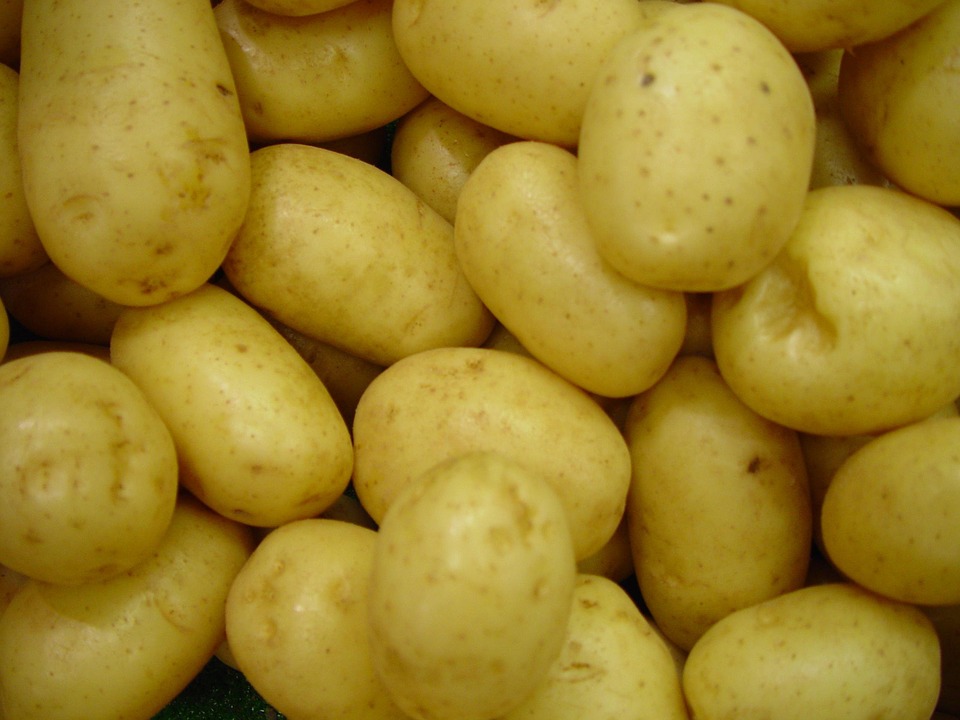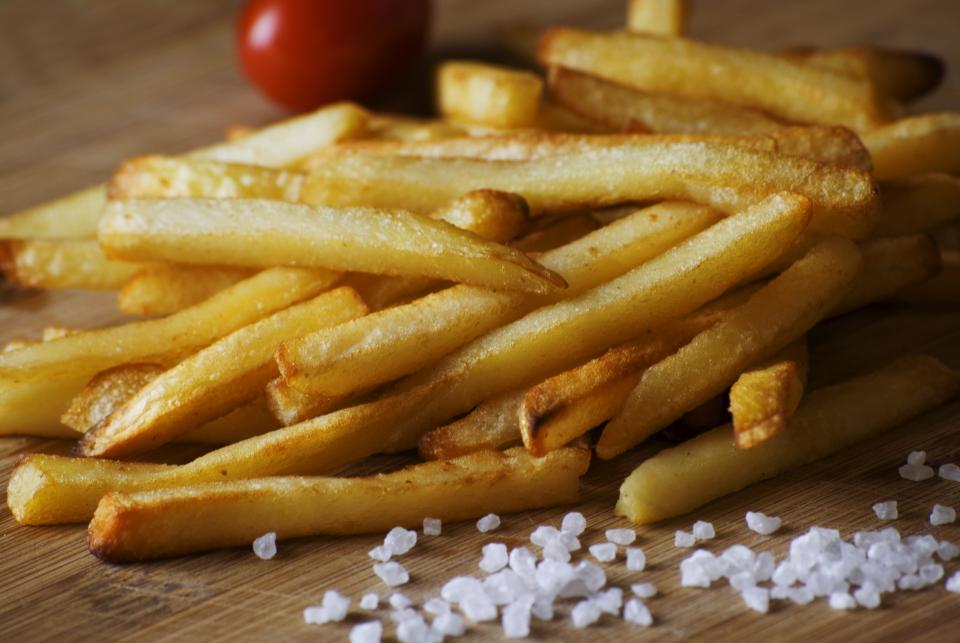This comprehensive guide explores the nutritional value, potential risks, and safe preparation methods for feeding potatoes to your canine companion. We'll dive into the details of different potato types, the importance of avoiding toxic components, and how to incorporate potatoes into your dog's diet in a safe and healthy way. This article provides a vet-approved guide, offering insights to help you make informed decisions about your dog's dietary choices.
Part 1: Understanding Potatoes and Their Nutritional Profile

1.1 The Nutritional Value of Potatoes
Potatoes are a versatile root vegetable offering various essential nutrients.
- Carbohydrates: Potatoes are a good source of complex carbohydrates, providing energy for dogs. These carbohydrates break down slowly, ensuring sustained energy release and preventing energy spikes.
- Vitamin C: This crucial antioxidant supports immune function, tissue repair, and wound healing, aiding in overall health.
- Vitamin B6: This vitamin plays a critical role in metabolism, red blood cell production, and neurotransmitter synthesis, contributing to healthy brain function and energy production.
- Potassium: This mineral is essential for muscle function, nerve transmission, and maintaining healthy blood pressure. Adequate potassium levels support optimal hydration and overall bodily function.
- Fiber: Potato fiber promotes healthy digestion and regularity, aiding in the efficient passage of food through the digestive tract and supporting a healthy gut microbiome.
- Other Minerals: Potatoes also contain trace amounts of iron, magnesium, and phosphorus, further contributing to their nutritional value.
1.2 Types of Potatoes
Different potato varieties possess varying nutritional profiles and cooking properties. Understanding these variations is crucial for making informed choices for your dog.
- Starchy Potatoes: These varieties, including russets and baking potatoes, are higher in carbohydrates and calories, making them a more energy-dense option. They are ideal for baking, roasting, or mashing.
- Waxy Potatoes: These potatoes, such as red potatoes and new potatoes, have a lower starch content and higher moisture content. They hold their shape well during cooking and are suitable for boiling, steaming, or salads.
- Sweet Potatoes: Although not technically potatoes, sweet potatoes are a root vegetable rich in vitamin A, fiber, and antioxidants. They are a nutritious treat for dogs, but should be cooked thoroughly and offered in moderation.
Part 2: Can Dogs Eat Potatoes? A Look at the Risks

2.1 Solanine: The Toxic Compound in Potatoes
Solanine is a naturally occurring glycoalkaloid found in potatoes, particularly in the green parts, sprouts, and under the skin. This compound can be toxic to dogs, causing various symptoms.
- Gastrointestinal Upset: Solanine can irritate the stomach and intestines, leading to vomiting, diarrhoea, and abdominal pain.
- Lethargy and Weakness: High levels of solanine can affect the nervous system, causing lethargy, weakness, and coordination problems.
- Neurological Problems: In severe cases, solanine poisoning can lead to tremors, seizures, and even coma.
2.2 The Importance of Proper Preparation
Proper preparation is crucial to minimize the risks associated with feeding potatoes to dogs.
- Thorough Cooking: Always cook potatoes thoroughly before feeding them to your dog. This destroys solanine and makes the potato easier to digest.
- Remove the Skin: The skin of the potato contains the highest concentration of solanine, so it's essential to remove it before feeding it to your dog.
- Discard Green Parts: Any green parts, sprouts, or discolored areas should be discarded as they contain high levels of solanine.
2.3 Other Risks Associated with Potatoes
Besides solanine, other factors can pose risks when feeding potatoes to dogs.
- Digestive Issues: Raw potatoes are difficult for dogs to digest and can lead to bloating, gas, and diarrhoea.
- Weight Gain: Potatoes, especially starchy varieties, are high in calories and can contribute to weight gain if fed excessively.
- Pancreatitis: High-fat foods, like fried potatoes, can trigger pancreatitis in some dogs, a serious inflammatory condition of the pancreas.
Part 3: Safe Ways to Include Potatoes in Your Dog's Diet

3.1 Cooking Methods and Preparation
When preparing potatoes for your dog, use simple and safe cooking methods.
- Boiling: Boiling potatoes until tender is a simple and effective way to ensure they are cooked thoroughly.
- Steaming: Steaming potatoes preserves more nutrients than boiling and is a healthier option.
- Baking: Baking potatoes until soft is another safe and delicious way to prepare them for your dog.
- Avoid Frying: Fried potatoes are high in fat and calories and can be harmful to dogs.
3.2 Serving Size and Frequency
Potatoes should be offered as an occasional treat and not a staple food.
- Small Portions: Start with small portions, such as a small piece of cooked potato, and monitor your dog's reaction.
- Gradual Increase: If your dog tolerates potatoes well, you can gradually increase the portion size, but always in moderation.
- Frequency: Offer potatoes a few times a week, ensuring they are part of a balanced diet.
3.3 Choosing the Right Potatoes
The type of potato you choose can influence its nutritional value and digestibility.
- Starchy Potatoes: These are more calorie-dense and suitable for occasional treats.
- Waxy Potatoes: These are lower in calories and can be included more frequently in moderation.
- Sweet Potatoes: These are a nutritious treat, but should be offered in moderation due to their higher sugar content.
Part 4: Alternatives to Potatoes for Dogs
4.1 Other Vegetables
Many other vegetables are safe and healthy for dogs to eat, offering a variety of nutrients.
- Carrots: Excellent source of vitamin A and fiber, promoting eye health and digestion.
- Green Beans: Low in calories and a good source of vitamins and minerals, contributing to overall health.
- Broccoli: Rich in vitamin C, vitamin K, and fiber, supporting immune function, bone health, and digestion.
- Spinach: Packed with vitamins A, C, and K, as well as iron, promoting eye health, immune function, and red blood cell production.
4.2 Fruits for Dogs
Some fruits can be enjoyed by dogs as occasional treats, offering a variety of nutrients.
- Apples: A good source of fiber and vitamin C, supporting digestion and immune function. Ensure to remove the core and seeds, as they are harmful.
- Bananas: Rich in potassium and fiber, promoting muscle function and digestion. Offer in moderation due to their sugar content.
- Blueberries: Packed with antioxidants and fiber, supporting overall health and promoting healthy digestion.
- Strawberries: A good source of vitamin C and antioxidants, supporting immune function and overall well-being.
Part 5: FAQs about Potatoes and Dogs
5.1 Can Dogs Eat Sweet Potatoes?
Yes, sweet potatoes are generally safe for dogs to eat when cooked thoroughly. They are a nutritious source of vitamin A, fiber, and antioxidants.
5.2 Can Dogs Eat Potato Skins?
No, potato skins should not be fed to dogs, as they contain high levels of solanine.
5.3 Are Potato Chips Safe for Dogs?
No, potato chips are highly processed and contain unhealthy ingredients like salt, fat, and seasonings that can be harmful to dogs.
5.4 Can Dogs Eat French Fries?
French fries, similar to potato chips, are not suitable for dogs due to their high fat content and seasonings.
5.5 How Often Can I Give My Dog Potatoes?
Potatoes should be given as occasional treats and not a staple food. A small piece a few times a week is sufficient.
5.6 What Happens If My Dog Eats a Potato?
If your dog eats a small amount of cooked, plain potato, it is unlikely to cause any serious harm. However, if you are concerned or notice any symptoms like vomiting, diarrhoea, or lethargy, contact your vet immediately.
Everyone is watching
-

Can Dogs Eat Bananas? A Guide to Safe Treats
DOGS & PUPPIESThis comprehensive guide will delve into the world of canine nutrition, focusing on the popular question: can ...
-

Can Dogs Eat Oranges? (Is It Safe or Toxic?)
DOGS & PUPPIESThis article delves into the question of whether dogs can safely consume oranges. We'll explore the nutrition...
-

Can Dogs Eat Grapes? The Shocking Truth About This Fruit
DOGS & PUPPIESThis article delves into the controversial topic of grapes and dogs, exploring the potential dangers associate...
-

Why Do Dogs Eat Poop? Understanding Coprophagia in Dogs
DOGS & PUPPIESThis article delves into the perplexing phenomenon of coprophagia, the act of eating faeces, in dogs. We explo...
-

Can Dogs Eat Shrimp? A Guide to Safety and Risks
DOGS & PUPPIESThis comprehensive guide dives into the world of shrimp and dogs, exploring the potential benefits and risks a...
